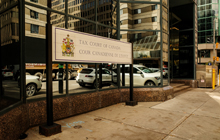Guide to Canadian tax rules on benefits arising from use of corporate assets (e.g., money, trips, boats, cars, space trips, etc.

What happens when business owners dip into their corporation's pockets to pay for personal expenses? Potentially dire consequences, says David J Rotfleisch
Introduction
 |
David J Rotfleisch, CPA, JD is the founding tax lawyer of Taxpage.com and Rotfleisch & Samulovitch P.C., a Toronto-based boutique tax law corporate law firm. |
Business owners are often tempted to dip into the corporation's pockets to pay for personal expenses. A temptation which seems like a relatively insignificant transgression but in reality, is a decision that can create dire tax consequences. A corporation paying amounts for a purpose other than earning income is generally incurring a non-deductible expense for the corporation. Additionally, the Canada Revenue Agency may personally assess the business owner with a shareholder benefit received for appropriating corporate funds for personal use.
If a business owner wishes to extract funds from a corporation for personal use, the proper method is through paying a salary, bonus, or dividend. Each of these methods is a taxable event for the recipient of the funds. Although a loan can be taken from the corporation to extract funds there are strict requirements for repaying it without incurring adverse tax consequences. Business owners must be cognizant of the tax consequences whenever accessing funds within a corporation, as the tax consequences will vary, depending on the way which the funds are received.
Laliberté v Canada: An Extra-Terrestrial Example
The most notorious example of the application of a benefit to a business owner took place in Laliberté v Canada, 2020 FCA 97. Where the Federal Court of Appeal affirmed that the $41.8 million dollars incurred by Cirque du Soleil did not serve a business purpose and was instead a personal trip Mr. Laliberté took on the corporate dime.
In Laliberté, a corporation in Cirque du Soleil's corporate group paid $41.8 million for Mr. Laliberté's 12-day excursion to the International Space Station. Mr. Laliberté was the group's controlling shareholder, and the Tax Court of Canada found that Mr. Laliberté committed to taking the trip before seeking approval from anyone in the Cirque du Soleil group, and structured the transactions such that external shareholders interests were unaffected by the costs associated with the trip.
Despite Mr. Laliberté's claim that the trip was a foray into a new form of marketing. The Tax Court and Federal Court of Appeal held that the transaction was a personal venture, rather than a bona fide business transaction. Mr. Laliberté was ruled to have received a shareholder benefit equal to $37.6 million of the cost of the trip, with the remaining $4 million allocated to business activities of the corporate group.
Although most taxpayers will not be faced with the question of whether or not the space expedition taken should qualify as a business expense, Laliberté serves as a clear reminder that business funds and assets are not to be utilized by the owner for personal use and instead must be used for the pursuit of profit by the business.
Jackman v The Queen: Marketing Still Considered A Business Purpose
In Jackman v The Queen, 2022 TCC 73, a Vancouver Island couple was assessed for a shareholder benefit by the CRA for personal use of a boat owned by a corporation under the couple's control. The primary use of the boat in the business was to market directly to boaters in the marina where the business operated. This marketing was accomplished by taking the boat out to meet boaters in smaller marinas or bays within the surrounding area. The boat was also used to travel to and entertain at boat shows in both British Columbia and Washington, hoping to attract more traffic to the business. The boat was also used in incidental business activities and personal use was very occasional.
The CRA reassessed the couple, questioning the "marketing" activities and suggesting that there was a personal element that needed to be taken account when evaluating the shareholder benefit. Justice Boyle saw the marketing in a different light than the CRA, describing the use of the watercraft as "typical direct personal marketing" which "proved very successful" as mooring and fuel revenues increased each year. Justice Boyle went on to find that the boat was primarily acquired and used for business purposes — only being utilized for personal use five per cent of the time.
Critically, Justice Boyle highlighted that the courts do not permit the CRA to simply second-guess a business's marketing strategy or efforts, even if unsuccessful in generating revenue. If a business engages in bona fide marketing activities which are primarily undertaken for a business purpose, the CRA cannot second-guess the purpose due to the poor execution of the marketing activities by the owner, or the owner's resulting enjoyment.
Justice Boyle held that the $18,000 the couple paid to the corporation for personal use of the boat was sufficient to cover the value of the personal use, allowing the couple's appeal of the reassessments.
Pro Tax Tips – Business Purpose Is Key
Justice Boyle took the same approach in both Laliberté and Jackman but came to different conclusions on whether there was a shareholder benefit. The key distinction between the result of the two is the business purpose regarding the relevant expense. In both cases the business owner was paying an amount towards the expense, the distinction being that Laliberté primarily incurred the expense to fulfill a personal desire and use. Whereas in Jackman, the couple very occasionally utilized an asset which was primarily acquired for a clear business purpose. Although there were ancillary marketing benefits to the trip taken in Laliberté, those benefits were not the primary goal.
David J Rotfleisch, CPA, JD is the founding tax lawyer of Taxpage.com and Rotfleisch & Samulovitch P.C., a Toronto-based boutique tax law corporate law firm and is a Certified Specialist in Taxation Law who has completed the CICA in-depth tax planning course. He appears regularly in print, radio and TV and blogs extensively. With over 30 years of experience as both a lawyer and chartered professional accountant, he has helped start-up businesses, cryptocurrency traders, resident and non-resident business owners and corporations with their tax planning, with will and estate planning, voluntary disclosures and tax dispute resolution including tax audit representation and tax litigation.
Visit www.Taxpage.com and email David at david@taxpage.com. Read the original article on Tax Law Canada. Photo David Rotfleisch courtesy Rotfleisch & Samulovitch P.C. Title image: iStock (hand point on data report show on screen stock photo).










(0) Comments